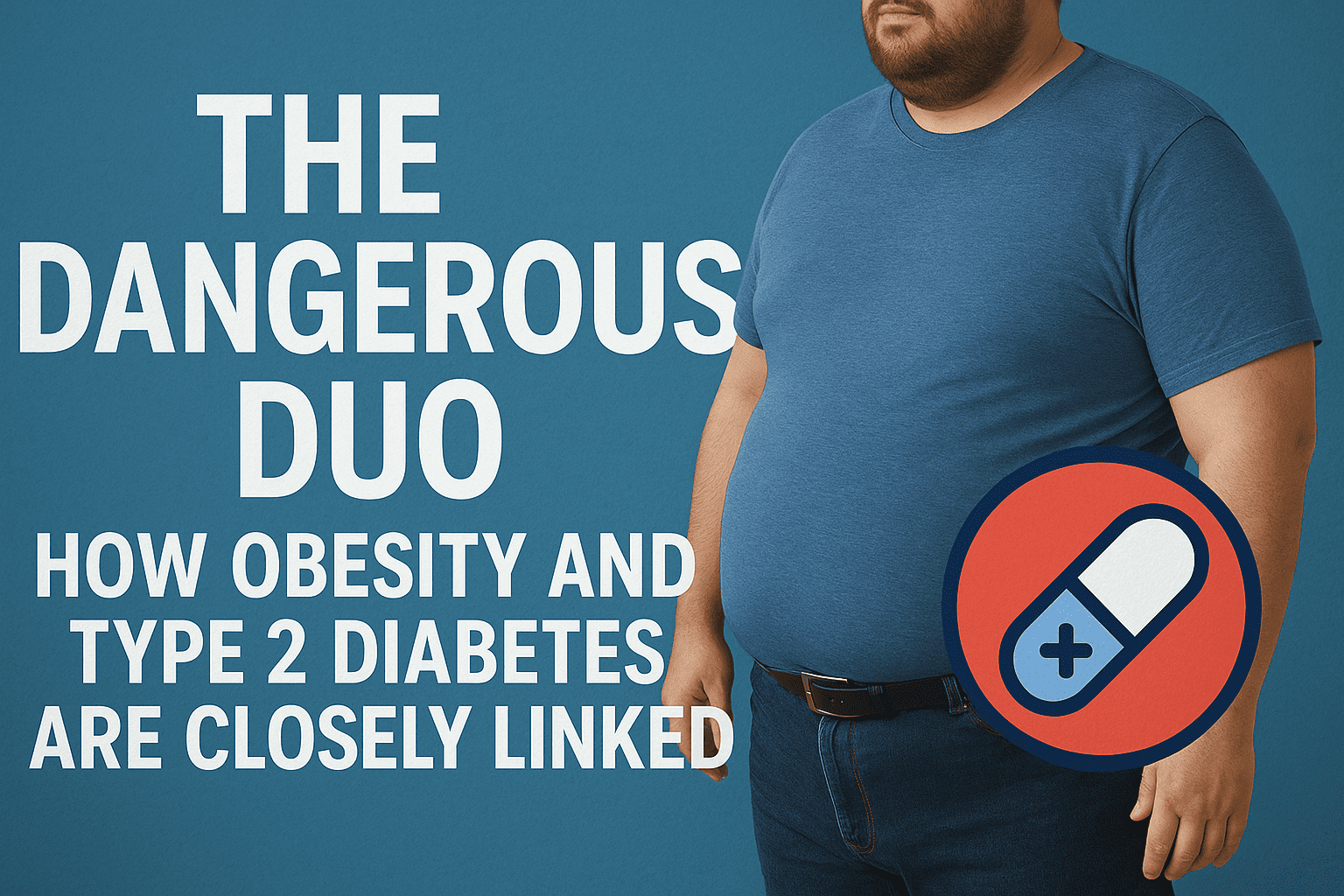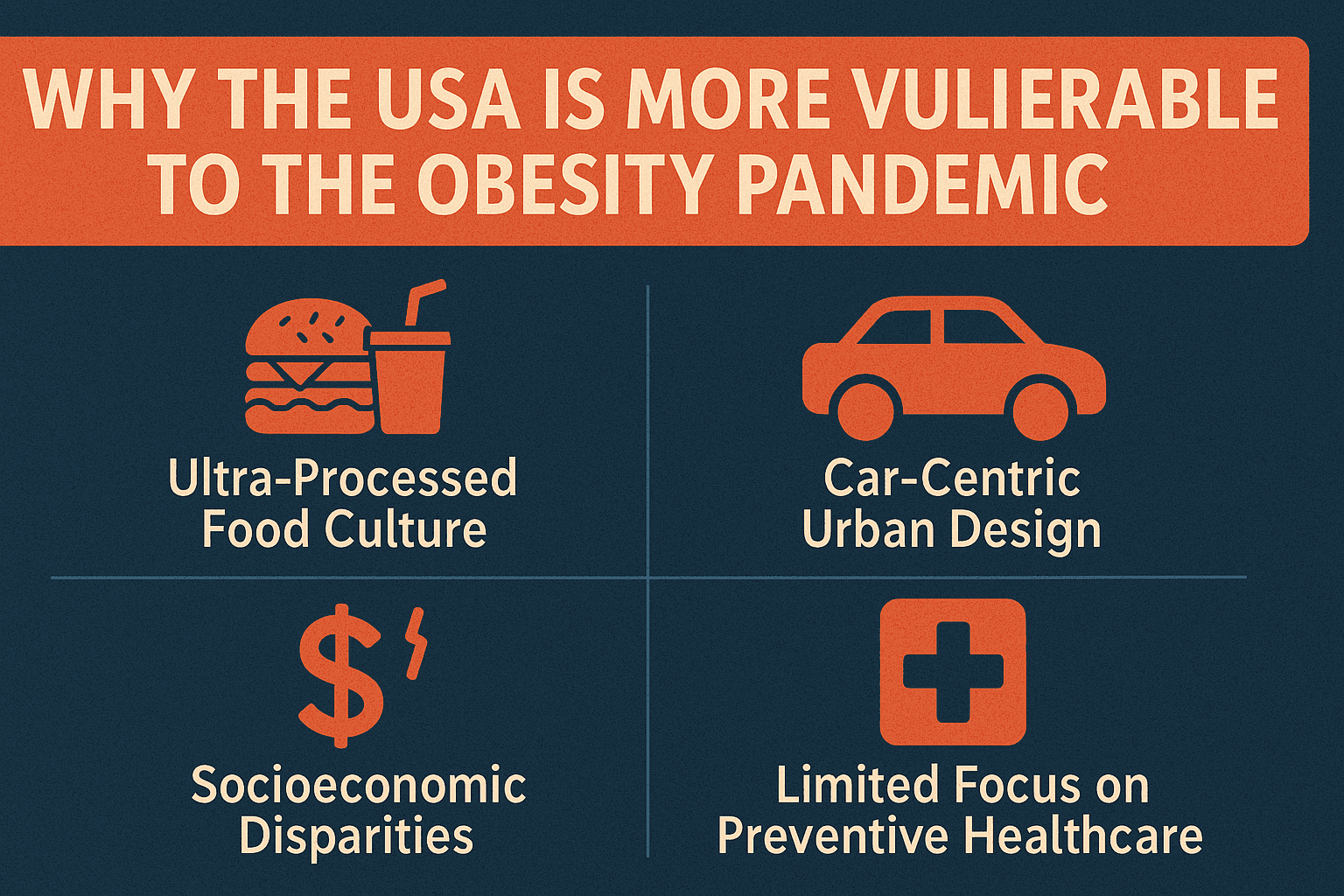Semaglutide, a breakthrough drug originally designed for type 2 diabetes, is now transforming the landscape of public health by showing powerful effects in obesity management as well. As obesity rates continue to surge globally, semaglutide is being hailed as a game-changer in tackling one of the biggest health crises of the 21st century.
💉 What is Semaglutide?
Semaglutide is a GLP-1 receptor agonist, a class of drugs that mimics the hormone GLP-1 to regulate insulin, control appetite, and promote weight loss. It’s marketed under brand names like Ozempic, Wegovy, and Rybelsus.
📈 Why It Matters for Public Health
1. Massive Reduction in Obesity
In clinical trials, semaglutide has helped people lose 15–20% of their body weight, a figure comparable to the results of bariatric surgery. That’s unprecedented for a drug-based intervention.
2. Diabetes and Heart Disease Prevention
By reducing weight and improving blood glucose levels, semaglutide can lower the risk of type 2 diabetes, heart disease, and stroke—three major drivers of healthcare costs and premature death worldwide.
3. Improved Quality of Life
Patients report higher energy, better mobility, and improved mental health. This has huge implications for workforce productivity and healthcare dependency.
4. Lower Long-Term Healthcare Costs
A reduction in obesity-related conditions means lower hospitalization rates, fewer surgeries, and less chronic disease management in the future.
🧬 Real-World Impact: What Studies Say
A landmark study published in the New England Journal of Medicine found that:
- Patients lost an average of 33–35 lbs over 68 weeks.
- Type 2 diabetes progression dropped significantly.
- Improvement in blood pressure, cholesterol, and inflammation markers was observed across groups.
🌐 Public Health Challenges Still Remain
Despite the promise, semaglutide’s public health impact could be limited by:
- High cost and insurance barriers
- Limited long-term data on sustained effects
- Supply shortages due to overwhelming demand
The Infodemic Phenomenon: Social Media and Semaglutide Demand
One of the most striking aspects of semaglutide’s public health impact has been the role of social media in driving unprecedented demand:
- Celebrity influence: Public figures like Elon Musk and speculated use by celebrities such as Kim Kardashian have fueled public interest.
- Viral trends: TikTok videos promoting rapid weight loss with Ozempic (semaglutide) contributed to global shortages.
- Search trends: Google data reveals explosive growth in semaglutide-related searches since 2021, with weight loss as the dominant theme across countries.
This “infodemic” has created challenges for public health authorities trying to balance appropriate use with growing off-label demand from non-diabetic patients seeking weight loss.
Ethical and Policy Considerations in Semaglutide Use
The semaglutide phenomenon raises several important public health policy questions:
- Prioritization: Should patients with diabetes receive priority access during shortages?
- Off-label use: How should healthcare systems respond to demand for weight loss in non-obese individuals?
- Long-term use: What are the implications of potentially lifelong treatment for population health?
- Prevention balance: Does pharmacological treatment complement or compete with lifestyle interventions?
These questions require multidisciplinary input from clinicians, ethicists, economists, and public health experts.
🔍 Final Thoughts: Why Semaglutide Could Shift Public Health Policy
As governments and healthcare systems face mounting pressure from obesity-related diseases, semaglutide offers a potential population-level intervention. If made accessible and affordable, it could become a central tool in national public health strategies.



